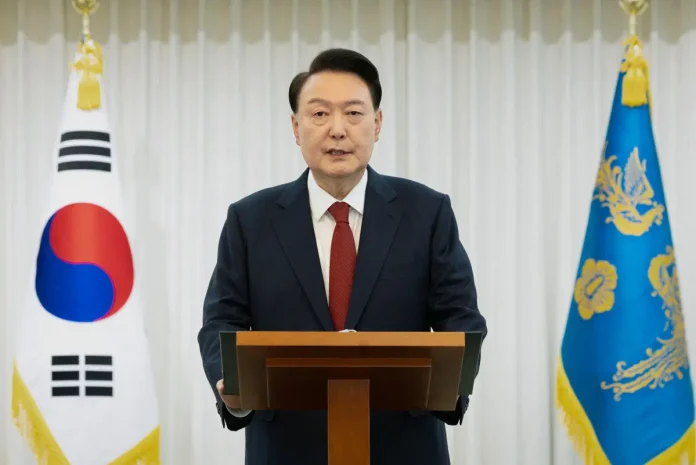In a dramatic turn of events, a South Korean court has issued an arrest warrant for impeached President Yoon Suk Yeol, following his controversial attempt to impose martial law. The warrant, issued on Tuesday, accuses Yoon of insurrection, a charge that carries the possibility of life imprisonment or even the death penalty.
Yoon, who briefly suspended civilian rule on December 3, plunged the country into its worst political crisis in decades. His actions led to his impeachment by parliament, with a pending constitutional court ruling set to determine whether the impeachment will be upheld.
According to the Joint Investigation Headquarters, both an arrest warrant and a search warrant were approved earlier in the day. Investigators had sought the warrant after Yoon failed to appear for questioning three times, with officials citing concerns that he might continue to evade summons.
“There is sufficient probable cause to suspect the commission of a crime,” a Corruption Investigation Office official stated. The warrant, valid until January 6, may see Yoon detained at the Seoul detention center. However, his lawyer, Yoon Kab-keun, has called the warrant “illegal and invalid,” asserting that investigators lack the authority to probe a sitting president and that Yoon’s actions did not amount to insurrection.
Meanwhile, investigators raided the army’s Counterintelligence Command offices, indicting two senior commanders on charges related to insurrection and abuse of authority.
Mounting Tensions
Hundreds of Yoon’s supporters gathered outside his residence on Tuesday, waving South Korean flags and chanting slogans such as “Martial law legal! Impeachment invalid!” Police maintained a heavy presence to manage the crowd.
Despite the issuance of the arrest warrant, executing it remains uncertain. The Presidential Security Service (PSS) has previously refused to comply with search warrants, and local media speculate that an arrest or search may not occur immediately as investigators seek coordination with the PSS.
Legal experts note that while search warrants can be rejected on legal grounds, there is no provision to obstruct an arrest warrant. “I expect the process will proceed smoothly,” Yun Bok-nam, president of Lawyers for a Democratic Society, told Hobnob News.
Joint Investigation
Yoon is under investigation by prosecutors, police, the defense ministry, and anti-corruption officials. A 10-page prosecutors’ report alleges that Yoon authorized the military to use weapons to enter parliament during his martial law declaration and had been discussing the plan with senior military officials since March.
The declaration, made during an unannounced televised address on December 3, was aimed at eliminating “anti-state elements,” according to Yoon. Lawmakers swiftly convened to overturn the declaration, prompting heavily armed troops to storm parliament, scaling fences and breaking windows in a chaotic show of force.
Adding to the political instability, Yoon’s interim successor, Han Duck-soo, was impeached last week for failing to cooperate with investigations into Yoon’s actions. Finance Minister Choi Sang-mok has assumed the role of acting president, facing immediate challenges, including the aftermath of the Jeju Air crash, which claimed 179 lives on Sunday.
(Hobnob News)

